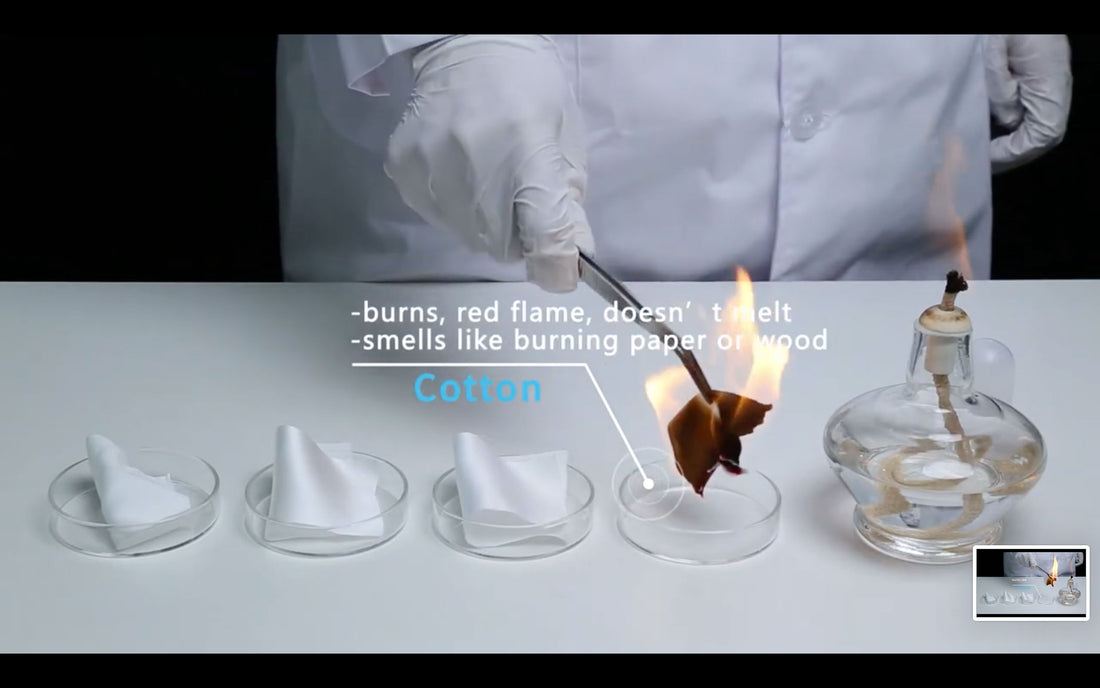
Distinguir entre algodón y poliéster en toallas turcas
Compartir
La selección de materiales en el proceso de fabricación juega un papel fundamental en la determinación del rendimiento de un producto en diversos escenarios. Para garantizar la máxima satisfacción del usuario, la idoneidad del material con respecto a la aplicación prevista del producto es de suma importancia. En el contexto de la Toalla Turca explorada en este artículo, que se utiliza como toallas de playa, toallas de baño, toallas de bienestar, mantas para bebés, fundas de asiento, manteles y bufandas, se prefiere el uso de fibras naturales como algodón, bambú, viscosa y lino, o incluso mezclas de estos. Entre estas opciones, el algodón ocupa un lugar apreciado como el material tradicional y preferido para la fabricación de Toallas Turcas.
Adoptando la sostenibilidad y la regeneración: La búsqueda de sostenibilidad en la industria textil ha llevado a medidas innovadoras como el reciclaje de residuos de algodón para crear hilos de algodón regenerado, a veces aumentados con una proporción medida de poliéster. Este hilo reciclado se ha utilizado en la creación de toallas turcas, ofreciendo una opción ecológica. Las marcas que eligen emplear hilo de algodón regenerado no están equivocadas; de hecho, este enfoque puede alinearse con prácticas éticas cuando se comunica de manera transparente la composición poliéster-algodón en la etiqueta del producto. Una bolsa de playa, por ejemplo, diseñada para la exposición a la arena, puede beneficiarse del uso de hilo regenerado ya que la absorción de agua no es un requisito clave en este contexto.
Consideraciones éticas: Sin embargo, es crucial reconocer que surgen preocupaciones éticas cuando las toallas turcas fabricadas con hilo de algodón regenerado se comercializan y venden como productos 100% algodón. Este escenario plantea preguntas éticas, ya que los clientes pagan sin saberlo un precio premium por un producto que debería tener un precio más bajo. Esta falta de transparencia socava la satisfacción del cliente y constituye una transacción poco ética.
Revelando el contenido de poliéster: Para determinar si una toalla turca comprada contiene poliéster, el análisis en laboratorio acreditado es el método más definitivo. Sin embargo, existe un método más sencillo: tirar de algunos hilos de la trama y el fleco de la toalla y quemarlos. Si los hilos se transforman en ceniza gris al quemarse, no hay poliéster. Sin embargo, si los hilos dejan un residuo negro en forma de perla, indica la presencia de poliéster.
Comprendiendo urdimbre y trama: Los peshtemals consisten en hilos de urdimbre y trama. Los hilos de urdimbre, típicamente bobinados del mismo material y color, también pueden presentar una mezcla de colores, lo que indica el posible uso de hilos regenerados. De manera similar, los hilos de trama, idealmente uniformes en material, pueden variar en la práctica para crear diferentes variantes de color. Tirar del hilo de trama desde el borde del producto permite una prueba discreta, mientras que extraerlo desde el interior podría provocar huecos visibles.
Colaborando con fabricantes confiables: Turquía, reconocida por su destreza textil, cuenta con numerosas fábricas especializadas en la producción de peshtemal. Denizli, en particular, es la capital turca de las toallas. Asociarse con fabricantes de confianza es vital para garantizar la integridad del producto. Aunque pueden surgir ofertas tentadoras de otras fuentes, se debe ejercer escepticismo, ya que una calidad inigualable a un precio irrealmente bajo probablemente sea demasiado buena para ser verdad.
En conclusión: Reconocer los materiales dentro de las toallas turcas y sus porcentajes de composición puede determinarse mediante pruebas de laboratorio acreditadas. Esto, sin embargo, conlleva gastos adicionales y entrega retrasada. Apreciar el compromiso con la calidad y la ética de una fábrica confiable es un enfoque valioso. La búsqueda de productos genuinos que se alineen con sus valores supera las ofertas atractivas pero dudosas. No dude en aportar cualquier información adicional sobre este tema en la sección de comentarios.
Saludos cordiales,
TowelAge.com
